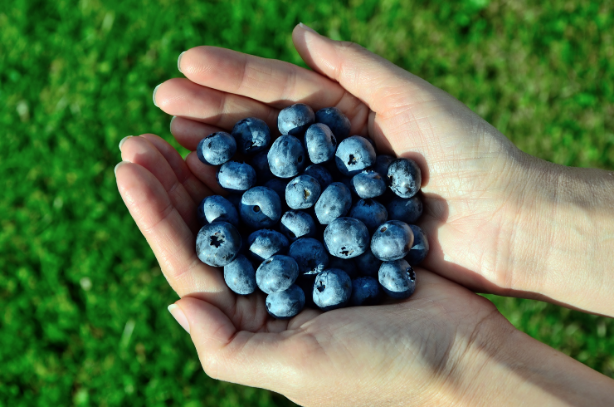The Delicious Berry that Fights Heart Disease
Dr. LivingoodShare

Today I’m introducing you to a berry that might just be your best bet against fighting inflammation and promoting heart health — the bilberry.
These small fruits, often overshadowed by their more popular cousin the blueberry, offer a powerful punch when it comes to health benefits. Let’s explore what bilberries are, their benefits, and how to incorporate them into your daily routine.
What are Bilberries?
Bilberries are closely related to blueberries and are often confused with them. However, bilberries are native to Europe and have their own unique set of health benefits.
While blueberries are already well-known for their antioxidant properties, bilberries take it a step further with their detoxifying effects. These little berries are gaining attention for their ability to combat inflammation and support heart health.

Bilberries and Heart Health
One of the most compelling reasons to include bilberries in your diet is their positive impact on heart health. Several studies have highlighted their benefits:
Reducing Inflammation
Inflammation is a key factor in many chronic diseases, including heart disease. Bilberries are rich in antioxidants, which help reduce inflammation in the body. In recent studies, consuming bilberries or their juice has been shown to significantly lower inflammation levels, especially in individuals at risk of heart disease or metabolic syndrome.
This means that bilberries can help manage conditions like high blood pressure, high cholesterol, and high triglycerides, which are all precursors to heart disease.
Weight and Waist Reduction
Another interesting finding from a study involving 110 women is that bilberries can aid in weight management. Participants who included bilberries in their diet for just one month saw a reduction in their waist circumference by an average of half an inch and lost around half a pound.
This effect is attributed to the berries’ ability to detoxify the body and reduce inflammation, leading to a slimmer waistline and healthier weight.
Blood Sugar Control
Bilberries also play a role in regulating blood sugar levels. A diet rich in bilberries, along with fish and whole grains, can help manage blood sugar issues due to the high fiber content of these foods. This is particularly beneficial for diabetics and anyone looking to maintain healthy blood sugar levels.
The fiber in bilberries improves sensitivity to sugars, helping to prevent spikes in blood sugar and supporting overall metabolic health.
Improving Cholesterol Levels
Consuming bilberries has been linked to better cholesterol levels. They help increase the good HDL cholesterol while reducing the bad LDL cholesterol. This balance is crucial for maintaining a healthy heart and preventing the buildup of plaque in the arteries.

Common Mistakes and How to Avoid Them
When it comes to integrating bilberries into your diet, there are a few common mistakes to watch out for:
Ignoring Portion Sizes
Bilberries are healthy, but they should still be consumed in moderation. Like all fruits, they contain natural sugars, and excessive consumption can lead to unwanted calorie intake. Stick to recommended serving sizes to enjoy their benefits without overdoing it.
Overlooking Diet Balance
Bilberries are a fantastic addition to your diet, but they should be part of a well-rounded approach to eating. Combine them with other heart-healthy foods like fish, whole grains, and leafy greens for the best results.
Not Being Consistent
To see the benefits of bilberries, consistency is key. Make them a regular part of your diet rather than an occasional treat. This will help you reap their full potential in terms of inflammation reduction and heart health.

Conclusion
Bilberries are more than just a tasty fruit — they are a powerful ally in the fight against inflammation and heart disease. By incorporating them into your diet, you can enjoy their numerous health benefits, from reducing inflammation and improving cholesterol levels to managing blood sugar and aiding in weight loss. Remember to enjoy them as part of a balanced diet and stay consistent for the best results.
Share
Related Articles
Most Popular
-
The 5 Amazing Benefits of Omega-3s
August 13, 2024 -
Healing Your ‘Second Brain’: The Path to a Healthier Gut
August 13, 2024







